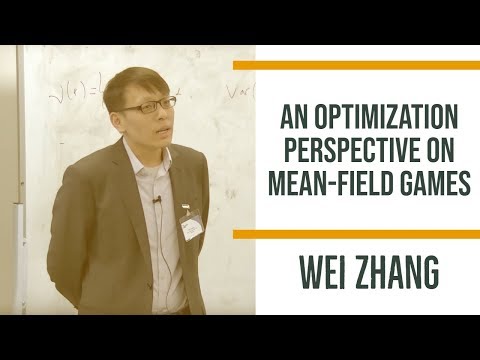Description:
Explore an optimization perspective on mean-field games in this 44-minute conference talk by Wei Zhang from Ohio State University. Delve into the theory and applications of mean-field games (MFG) in high-dimensional distributed optimization problems, particularly in energy production, storage, and climate change negotiations. Learn about approximate Nash equilibria, cyber-physical social systems, and atomic splittable routing games. Examine limitations in existing literature and discover a new class of mean-field games in vector space. Investigate practical examples, including constrained LQR games, PEV charging, and continuous-time LOG. Understand mean-field equations for finite agents, main results, and equilibrium computation methods. Explore extensions to nonconvex cases and connections to potential games. Gain insights into this powerful toolbox for solving complex optimization challenges in energy and environmental sciences.

An Optimization Perspective on Mean-Field Games - Wei Zhang, Ohio State University
Add to list